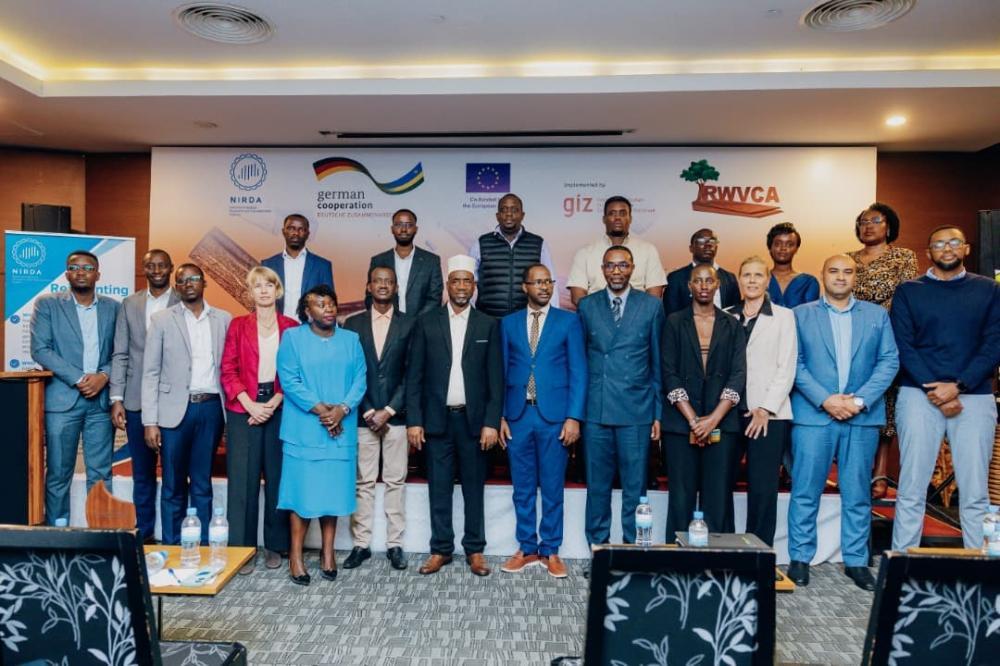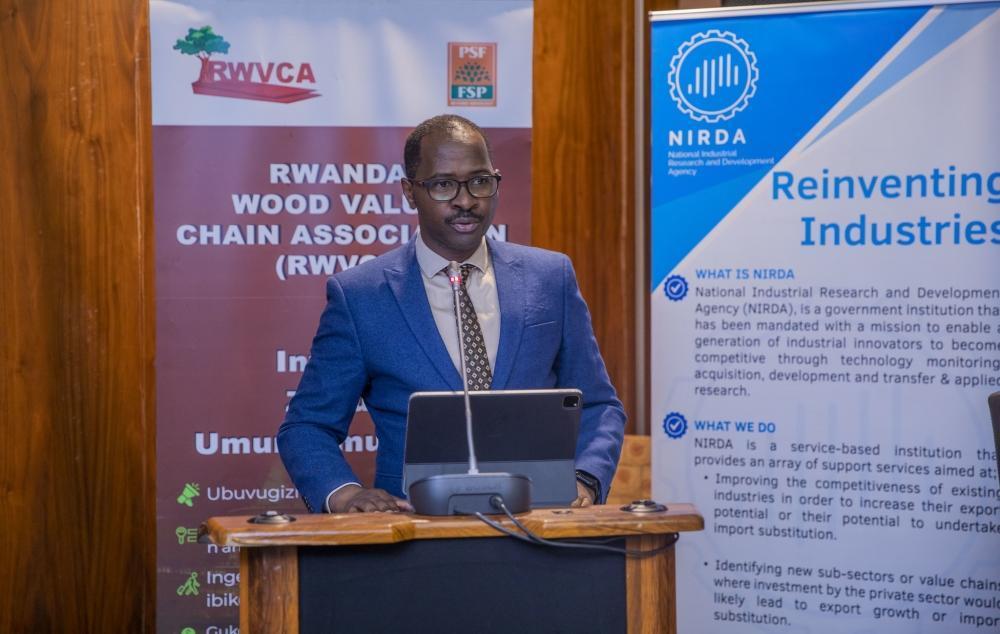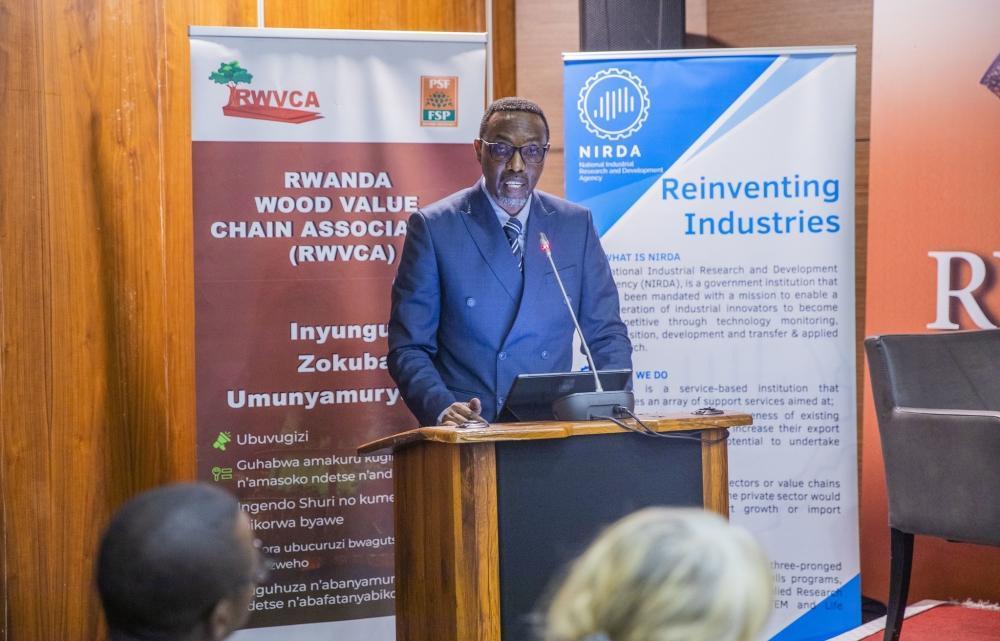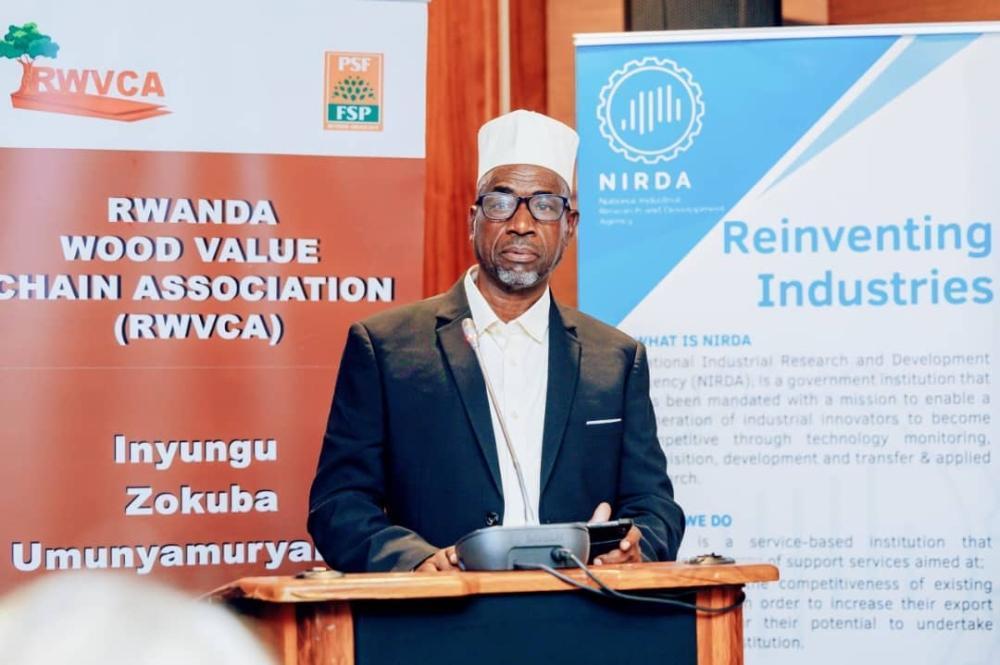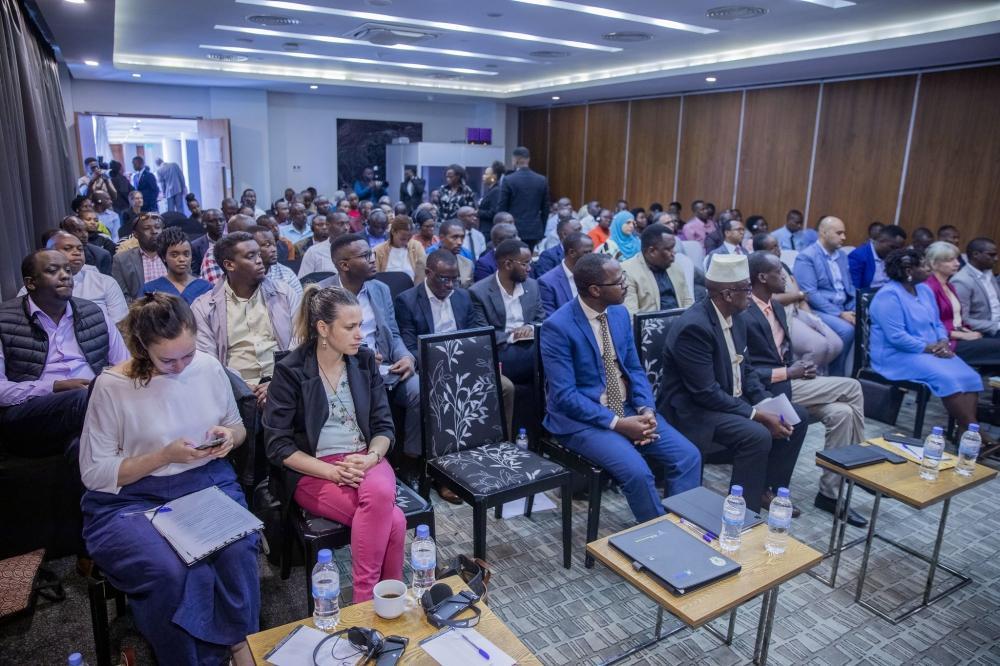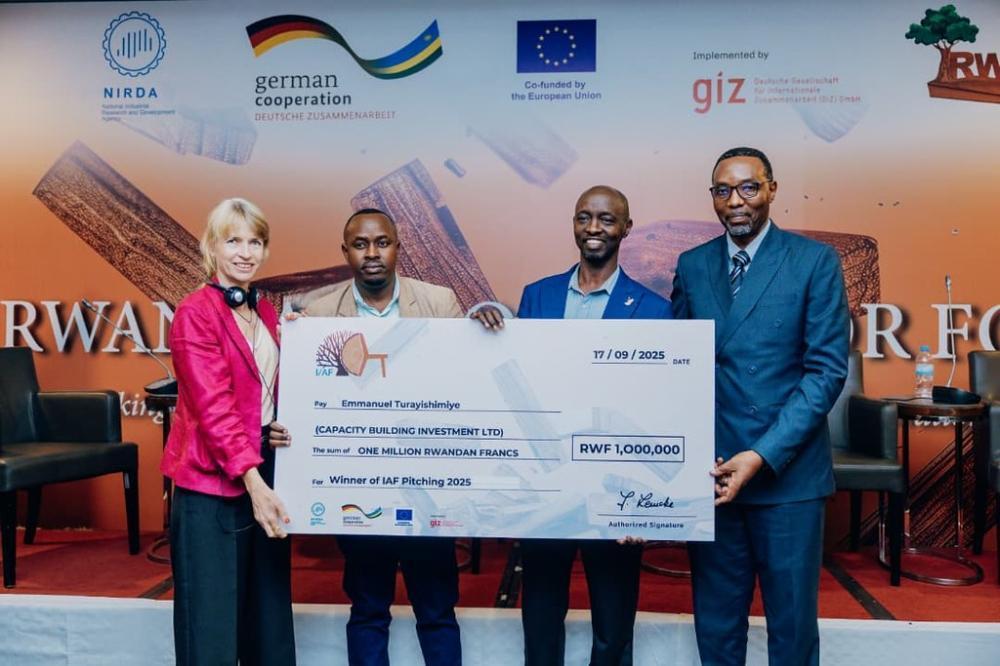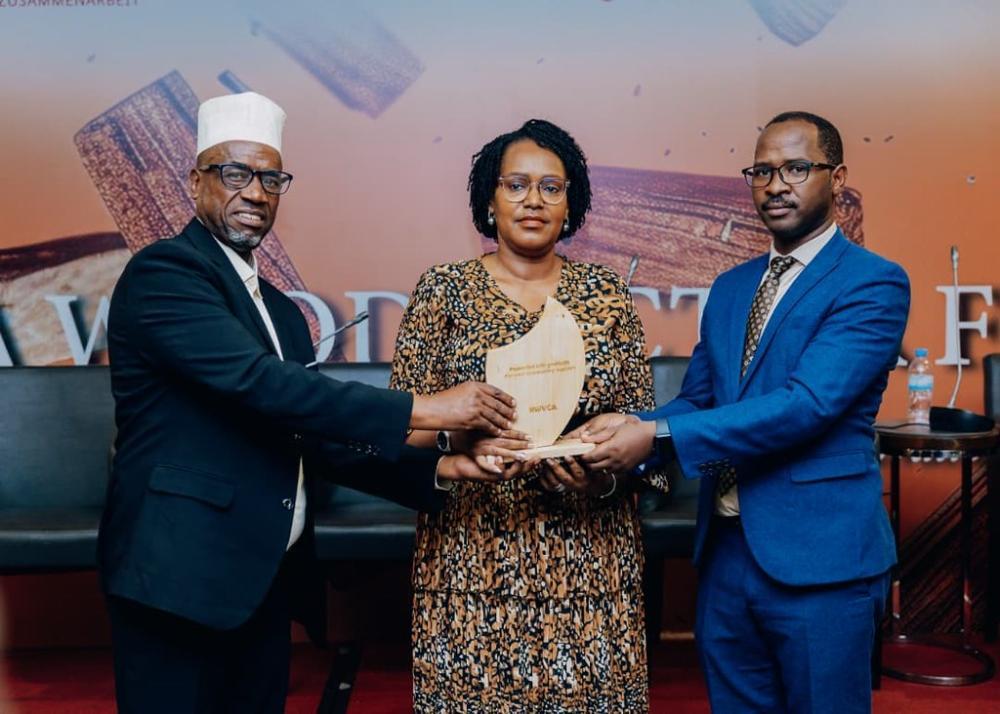Africa-Press – Rwanda. Rwanda is setting a new course for its wood sector, aiming for sustainable growth, innovation, and increased economic impact, according to Alexis Kabayiza, Chief Technical Advisor at the Ministry of Trade and Industry.
He was speaking at the inaugural Rwanda Wood Sector Forum (RWSF) on September 17, which was hosted by the National Industrial Research and Development Agency (NIRDA) in collaboration with the Rwanda Wood Value Chain Association (RWVCA) and GIZ.
The event, held at Ubumwe Grande Hotel, brought together entrepreneurs, SMEs, artisans, policymakers, investors, and development partners to explore strategies for transforming the sector into a competitive, inclusive, and sustainable driver of economic growth under the theme “Unlocking opportunities in Rwanda’s wood sector.”
Panelists during a discussion Rwanda Wood Sector Forum (RWSF) on September 17. Photos by Craish Bahizi
“The sector is moving beyond fragmentation and informality to become a coordinated, value-driven, and innovation-ready industry, one with the potential to fuel Rwanda’s broader agenda of industrialisation and green growth,” Kabayiza said.
“Demand for quality wood products is rising, technological advancements are unlocking new opportunities, and Rwanda’s policies are focused on leveraging natural resources for sustainable and inclusive development.”
Kabayiza noted that Rwanda has over 222,000 hectares of trees outside forests and 114,000 hectares of forest plantations, providing a strong foundation for sustainable growth.
Alexis Kabayiza, Chief Technical Advisor at the Ministry of Trade and Industry delivers his remarks at the forum on Wednesday, September 18. Craish Bahizi
The sector currently supports more than 75,000 jobs, many in rural areas, and generates around $76 million annually.
“These figures show the enormous potential to reduce imports, boost local production, and strengthen our economy,” he added.
He credited progress to partnerships and support from NIRDA, RWVCA, GIZ, and other stakeholders, which have assisted over 150 SMEs with incubation, equipment, and investment readiness programmes.
“Tax compliance has improved, enterprises now supply over 200,000 school furniture units every quarter, and public-private partnerships are strengthening. Access to finance is limited, standards need stronger enforcement, and the voice of sector operators must be amplified in policy dialogue,” Kabayiza said.
“Together, we can make Rwanda’s wood sector a regional model for green industrialisation, contributing not only to our economy but also to environmental stewardship and inclusive prosperity.”
Training, technology as drivers of change
Christian Sekomo Birame, Director General of NIRDA, said the Rwanda Wood Value Chain Association is performing well, thanks to ongoing training in wood processing, machine use, and forest management.
“The progress they have made so far is impressive, although there is still more, we need to continue training them so they can perform even better, as we expect.”
Christian Sekomo Birame, Director General of NIRDA, said the Rwanda Wood Value Chain Association is performing well
He noted that modern machines and technology have transformed the sector, boosted production, and improved quality.
“The traditional methods they used before are gradually being replaced as they embrace the use of modern technology. Much has already been achieved, and they have developed significant capacity, which is reflected in their impressive performance,” he added.
Hadji Abdul Rahaman Karemera, Chairperson of the Rwanda Wood Value Chain Association (RWVCA), emphasized the critical role of supportive partnerships in driving the sector forward. He highlighted how the establishment of the association has helped to reorganize sector players, bringing them together under a stronger, more coordinated platform.
Chairman Rwanda Wood Value Chain Association Hadji Abdul Rahaman Karemera
Through RWVCA’s efforts in advocacy, capacity building, and creating market linkages, members are now better equipped to access both local and international markets. He noted that these interventions are not only empowering businesses but also positioning Rwanda’s wood sector as a competitive and sustainable contributor to the national economy.
“As we celebrate the progress made, we must also recognize that some important challenges remain in the sector. Members have raised concerns around the types of inputs available to operators, as well as practices in forest management that affect both sustainability and competitiveness. These are issues that require continued dialogue and joint solutions between government, private sector, and development partners”.
He added, “To the private sector operators and artisans here today—you are the backbone of this industry. Your resilience, creativity, and drive are what will ultimately determine the success of Rwanda’s wood value chain. As RWVCA, we reaffirm our role as your advocate and partner, ensuring that your voices continue to be heard in shaping policies and strategies that matter to your businesses”.
Delegates follow panelists during a discussion at the inaugural forum in Kigali
The Rwanda Wood Sector Forum (RWSF) on September 17, which was hosted by the National Industrial Research and Development Agency (NIRDA) in collaboration with the Rwanda Wood Value Chain Association (RWVCA) and GIZ.
For More News And Analysis About Rwanda Follow Africa-Press

